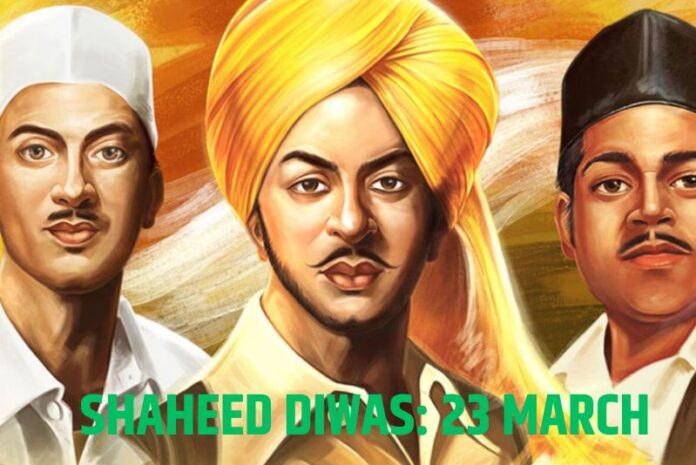Every year on 23rd March, Indian freedom warriors sacrifice their lives in the fight against British rule on Shaheed Diwas, a day of remembrance. The day pays tribute to all those who gave their lives in defense of India’s independence, even if its main purpose is to commemorate the martyrdom of Bhagat Singh, Sukhdev Thapar, and Shivaram Rajguru.
Prime Minister Narendra Modi earlier honored the Bravehearts who gave their life in defense of the nation. “Today the nation is remembering with reverence the martyrdom of Veer Bhagat Singh, Sukhdev, and Rajguru, the true sons of Mother India,” Prime Minister Modi remarked, introducing a film. Salutations and respects from his family members all throughout the nation on Martyr’s Day. “Jai Hind!”
History of Shaheed Diwas 2024
Bhagat Singh, Sukhdev Thapar, and Shivaram Rajguru were youthful revolutionaries who became household names in India’s struggle for independence. In their twenties, they actively joined in the military resistance to British colonization. In 1928, they bombed Delhi’s Central Legislative Assembly in protest of the Rowlatt Act, which severely limited civil rights. Despite their intentions to cause no injuries, the act became a strong symbol of opposition to British authority.
Shaheed Diwas has its origins in the sacrifices made by three extraordinary people who were significant in India’s freedom movement: Bhagat Singh, Rajguru, and Sukhdev. The British colonial authorities executed these courageous revolutionaries by hanging on March 23, 1931, as a result of their involvement in the Lahore Conspiracy Case.
In the Indian independence movement, Bhagat Singh—also referred to as the “Shaheed-e-Azam” or “Martyr of the Nation”—was a dynamic and significant figure. His revolutionary worldview encouraged numerous more to take up the battle against British imperialism, as did his fellow countrymen Rajguru and Sukhdev.
Their martyrdom inspired the nation, igniting widespread protests and propelling the fight for independence. The sacrifices made by Bhagat Singh, Rajguru, and Sukhdev became symbols of Indians’ indomitable spirit and unflinching devotion to achieving independence.
Shaheed Diwas’s Significance
Shaheed Diwas is extremely important in contemporary India. It is a striking reminder that freedom is not a gift; it is a hard-won right earned through the sacrifices of many people. The day rekindles patriotism and urges citizens to defend democracy, fairness, and equality, ideals for which the martyrs fought and died.
Martyr’s Day is significant because it honors the courageous liberators who died fighting India’s independence. It acts as a moving reminder of their unwavering fight and the sacrifices they made in order to be free of British domination. This day serves as a somber remembrance of the sacrifices made by these valiant people, inspiring the current generation to continue working toward the development and success of the country.
The following are some important facts regarding Bhagat Singh:
Young Revolutionary: In his early twenties, Bhagat Singh, a pivotal figure in India’s freedom war, became a potent symbol of resistance.
Violent Resistance: He took part in crimes like as bombing the Central Legislative Assembly because he supported violent resistance to British colonialism.
Unwavering devotion: Bhagat Singh persisted in his devotion to independence in the face of severe repercussions.
Martyrdom and Legacy: His 1931 execution provoked widespread indignation and marked a significant turning point in the history of the liberation movement.
Bhagat Singh’s statements have influenced nations and youths:

- “They may kill me, but they cannot kill my ideas. They can crush my body, but they will not be able to crush my spirit”
- “Revolution is an inalienable right of mankind. Freedom is an imperishable birthright of all.”
- “If the deaf have to hear, the sound has to be very loud.”
- “Merciless criticism and independent thinking are the two necessary traits of revolutionary thinking.”
- “Labor is the real sustainer of society.”
